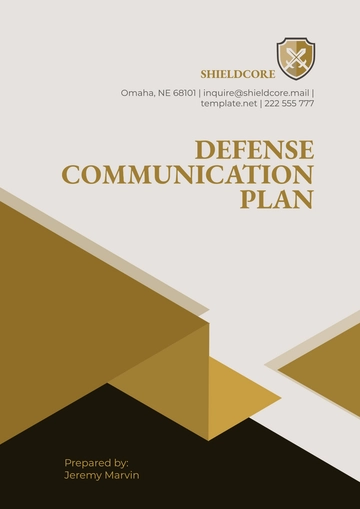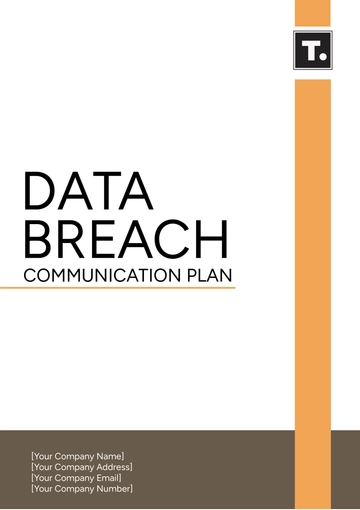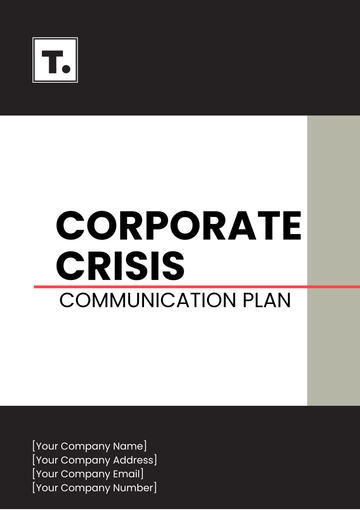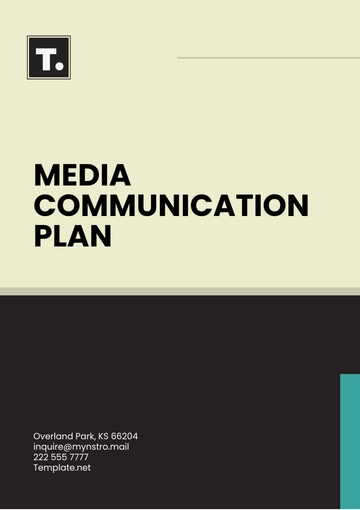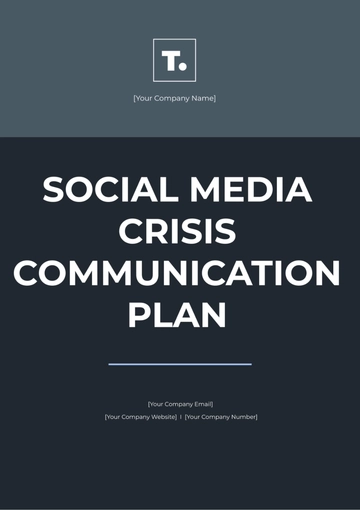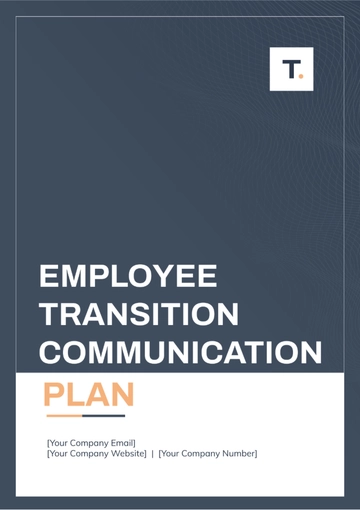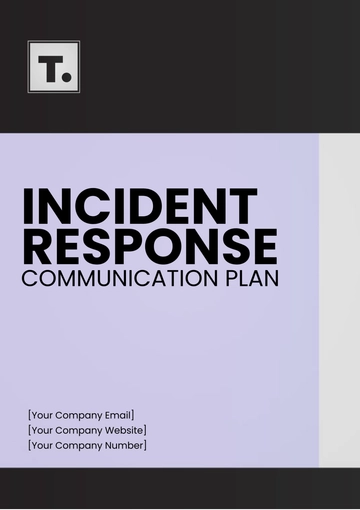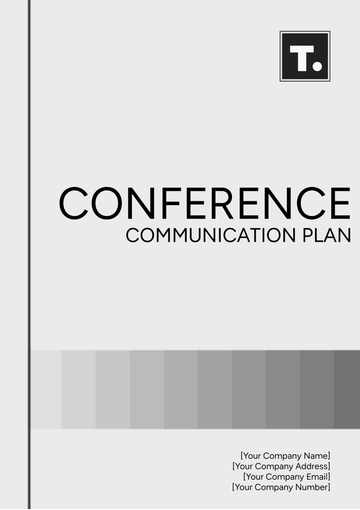Free Social Media Crisis Communication Plan
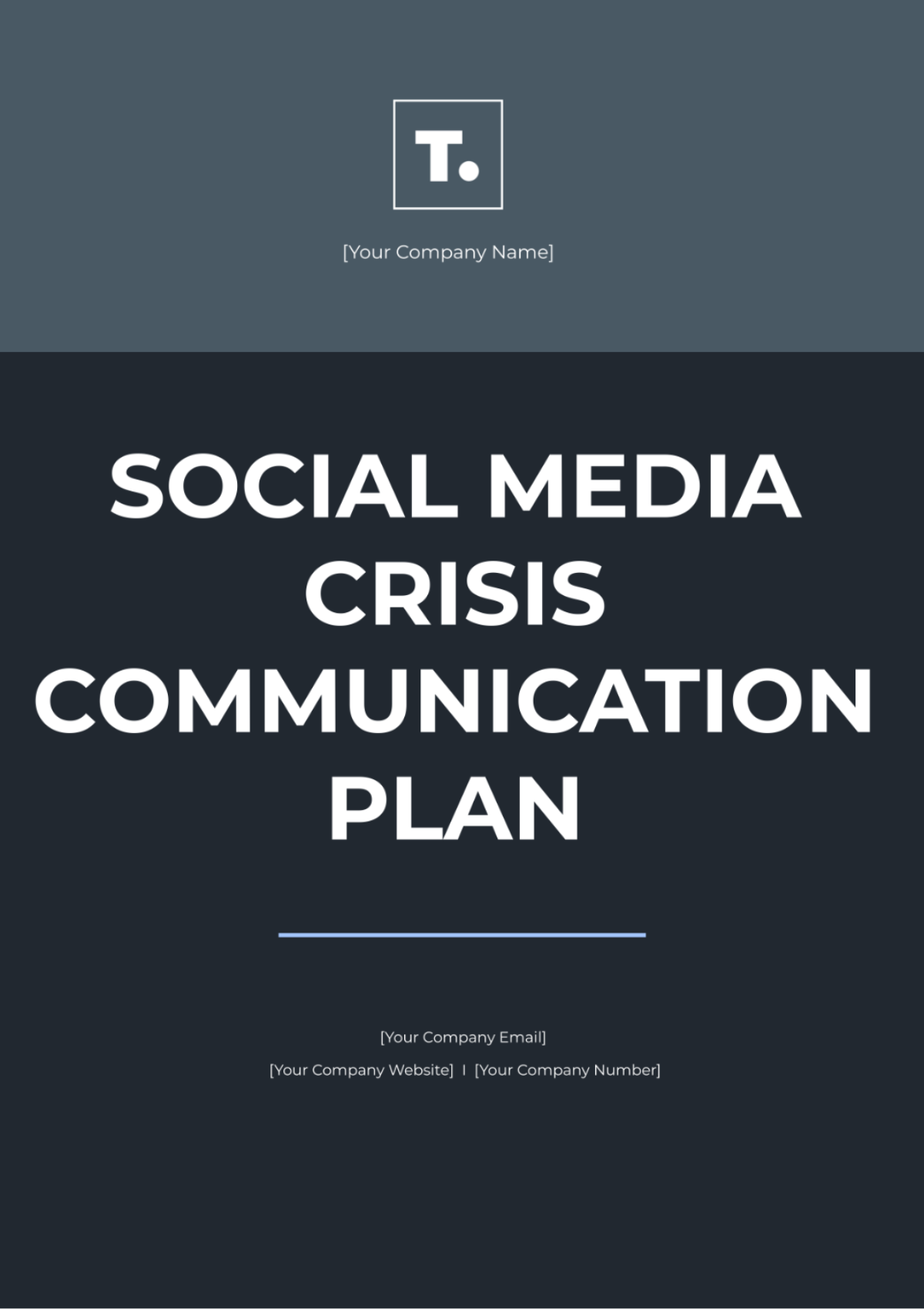
I. Introduction
In the rapidly evolving landscape of social media, brands face the risk of encountering negative publicity or backlash. A well-defined crisis communication plan is essential for effectively managing such situations. This template outlines the key components to guide your brand's response to social media crises.
II. Pre-Crisis Preparation
Establish a Crisis Response Team: Designate key individuals responsible for monitoring social media channels, including representatives from [PR, MARKETING, LEGAL, and SENIOR MANAGEMENT].
Develop a Communication Protocol: Create a clear chain of command and procedures for escalating issues internally.
Identify Potential Crises: Anticipate potential scenarios that could trigger negative publicity and develop response strategies for each.
Draft Holding Statements: Prepare generic statements acknowledging awareness of an issue and commitment to resolving it.
III. Monitoring and Detection
Utilize Social Listening Tools: Monitor social media platforms for mentions of your [BRAND NAME], products, and key personnel.
Identify Warning Signs: Recognize early indicators of a potential crisis, such as a surge in negative comments or trending hashtags.
Establish Monitoring Schedule: Regularly check social media channels for emerging issues, especially during high-risk periods like [EVENT NAME].
IV. Assessment and Response
Assess the Situation: Evaluate the severity and scope of the crisis to determine the appropriate response level.
Activate Crisis Response Team: Promptly alert the crisis response team and convene for a coordinated response.
Craft Response Messages: Tailor messages to address the specific concerns raised by stakeholders while maintaining transparency and empathy.
Select Communication Channels: Choose the most suitable platforms for disseminating crisis updates and engaging with affected parties.
Monitor Response Effectiveness: Continuously evaluate the impact of response efforts and adjust strategies as needed.
V. Crisis Resolution and Recovery
Resolve the Issue: Take decisive actions to address the root cause of the crisis and mitigate its impact on stakeholders.
Communicate Resolution: Inform the public of the steps taken to rectify the situation and reassure them of your commitment to addressing their concerns.
Monitor Post-Crisis Sentiment: Track sentiment on social media following the resolution to gauge public perception and identify lingering issues.
Conduct Post-Mortem Analysis: Review the crisis response process to identify strengths, weaknesses, and opportunities for improvement.
VI. Legal and Compliance Considerations
Compliance Review: Ensure all crisis communication materials comply with legal and regulatory requirements.
Legal Consultation: Seek guidance from legal counsel to mitigate potential liabilities and protect the [BRAND NAME's] reputation.
Document Retention: Maintain thorough records of all communications and actions taken during the crisis for future reference.
VII. Training and Simulation Exercises
Employee Training: Provide comprehensive training to employees on crisis communication protocols and procedures.
Simulation Exercises: Conduct regular drills to simulate crisis scenarios and test the effectiveness of the response plan.
Continuous Improvement: Use insights gained from training exercises to refine and enhance the crisis communication plan.
VIII. Conclusion
A robust social media crisis communication plan is indispensable for safeguarding your [BRAND NAME's] reputation and maintaining trust with stakeholders. By proactively preparing for potential crises and implementing effective response strategies, your brand can navigate challenging situations with confidence and resilience.
- 100% Customizable, free editor
- Access 1 Million+ Templates, photo’s & graphics
- Download or share as a template
- Click and replace photos, graphics, text, backgrounds
- Resize, crop, AI write & more
- Access advanced editor
Introducing the Social Media Crisis Communication Plan Template from Template.net. Crafted for seamless crisis management, this editable and customizable template ensures swift response strategies. Harness its power with ease using our AI Editor Tool. Safeguard your brand reputation effortlessly with this essential resource. Crisis communication made simple.

